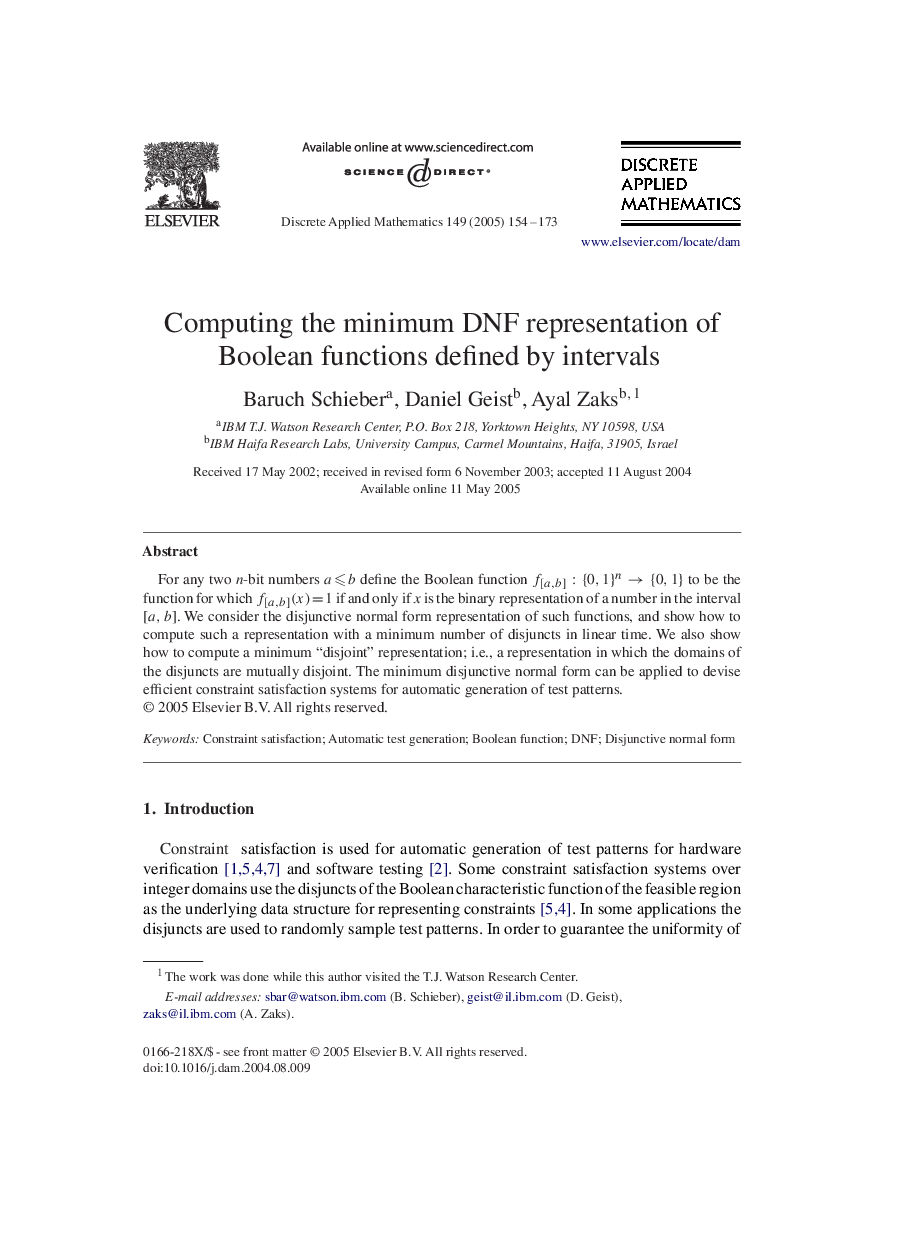| Article ID | Journal | Published Year | Pages | File Type |
|---|---|---|---|---|
| 9655186 | Discrete Applied Mathematics | 2005 | 20 Pages |
Abstract
For any two n-bit numbers a⩽b define the Boolean function f[a,b]:{0,1}nâ{0,1} to be the function for which f[a,b](x)=1 if and only if x is the binary representation of a number in the interval [a,b]. We consider the disjunctive normal form representation of such functions, and show how to compute such a representation with a minimum number of disjuncts in linear time. We also show how to compute a minimum “disjoint” representation; i.e., a representation in which the domains of the disjuncts are mutually disjoint. The minimum disjunctive normal form can be applied to devise efficient constraint satisfaction systems for automatic generation of test patterns.
Related Topics
Physical Sciences and Engineering
Computer Science
Computational Theory and Mathematics
Authors
Baruch Schieber, Daniel Geist, Ayal Zaks,
